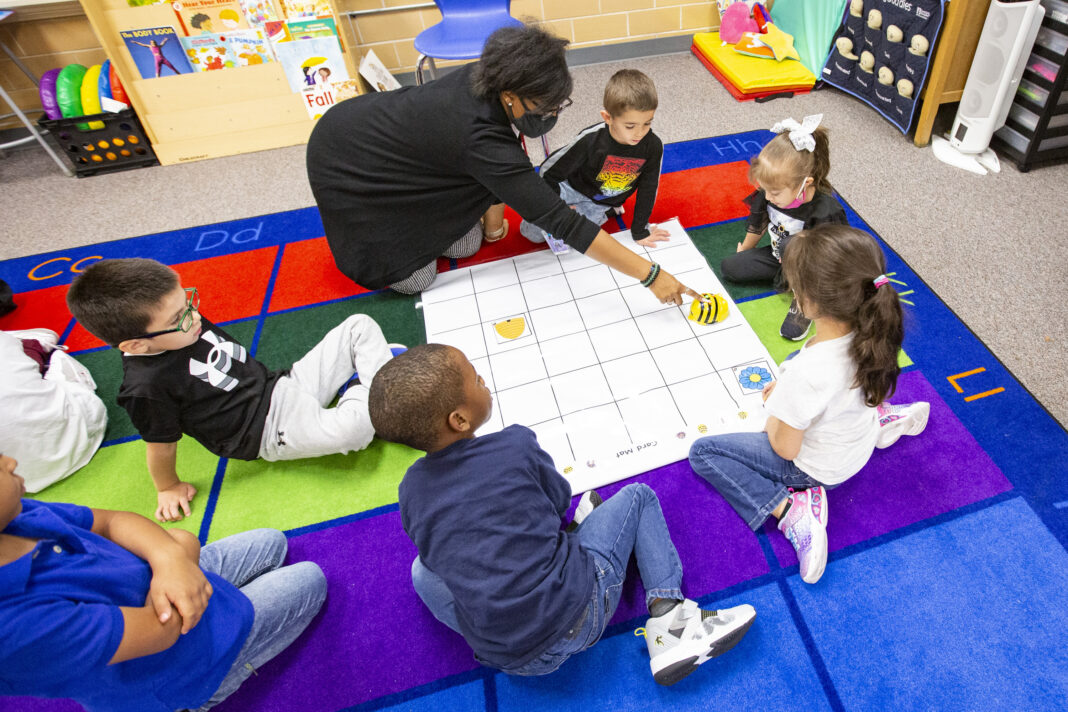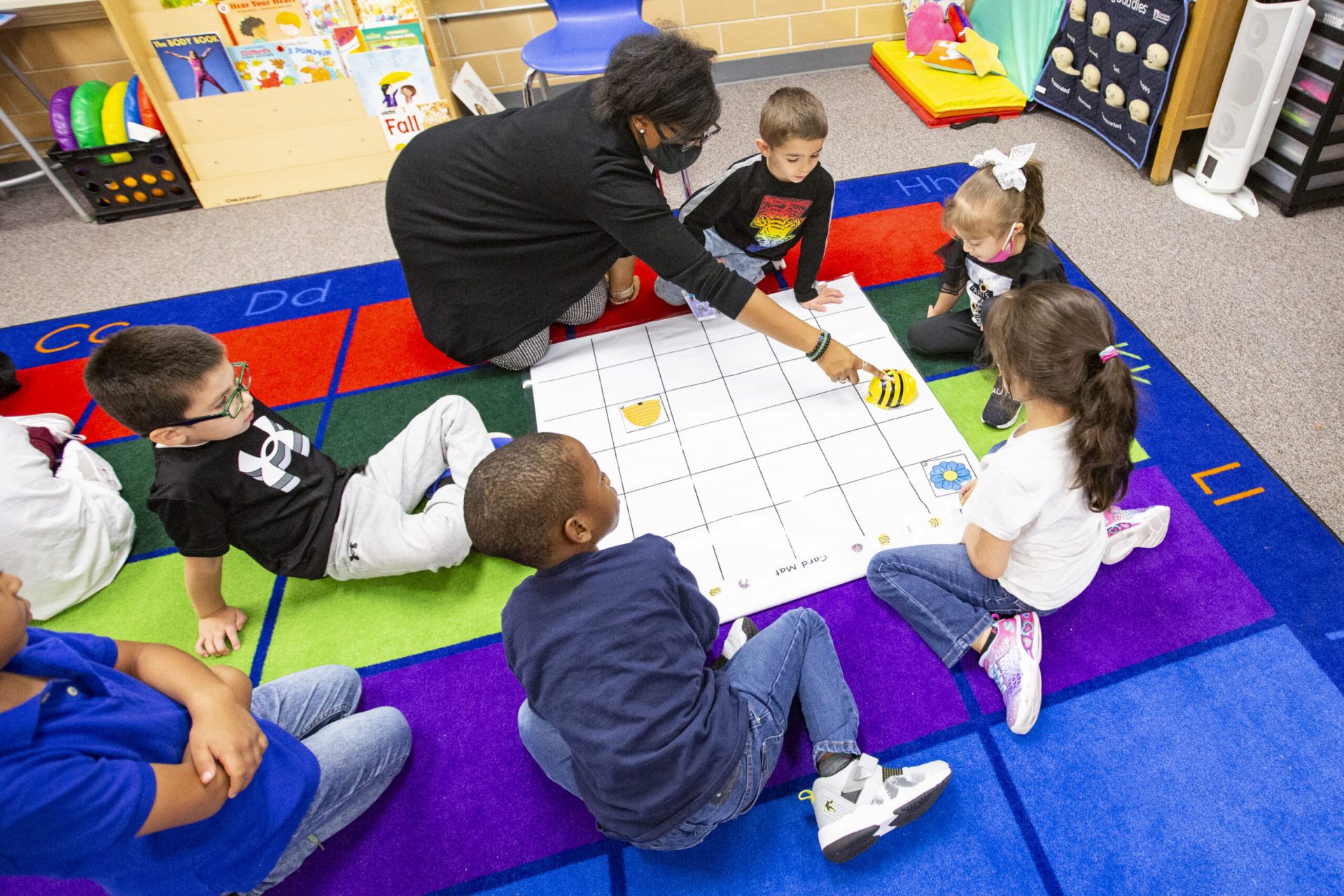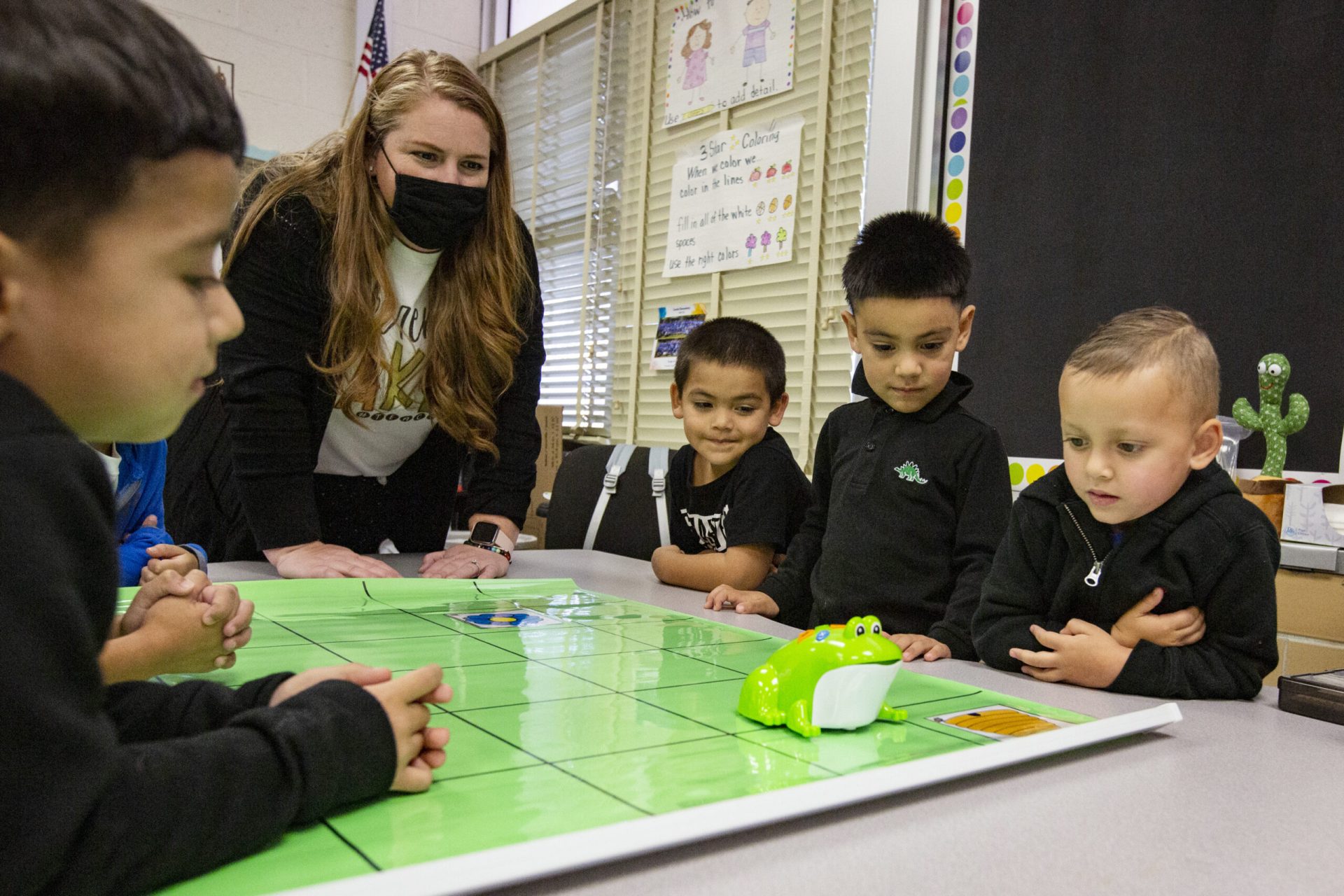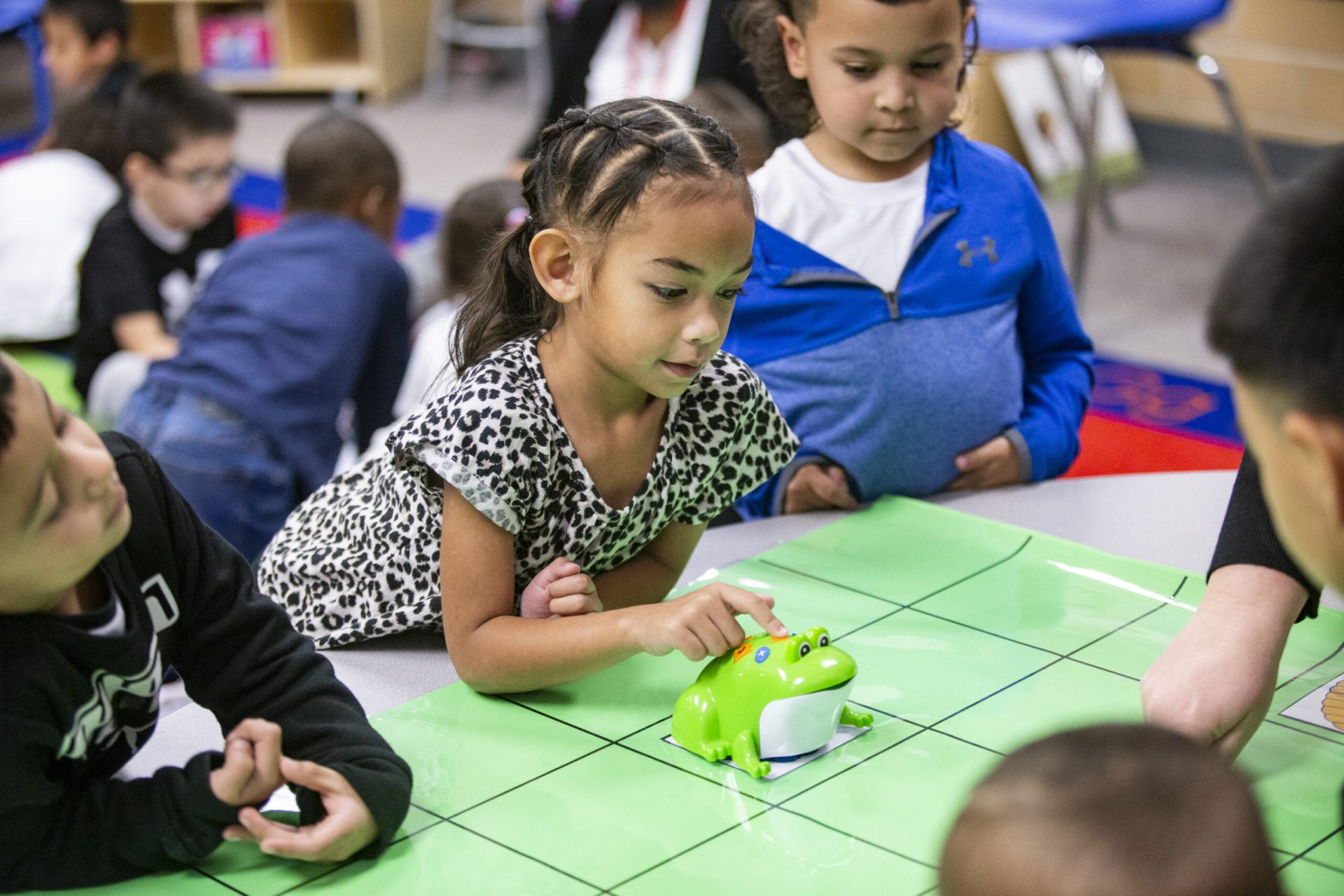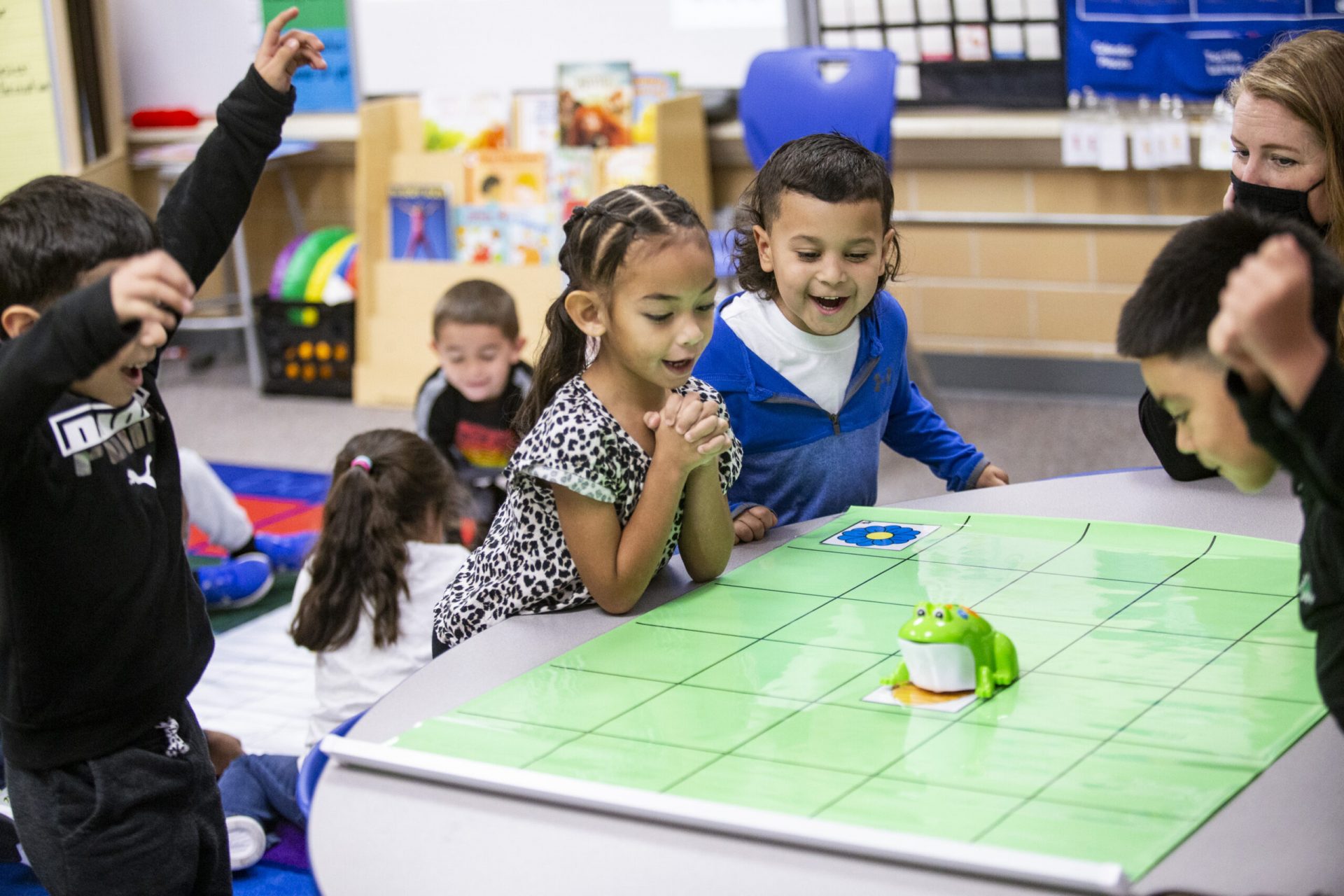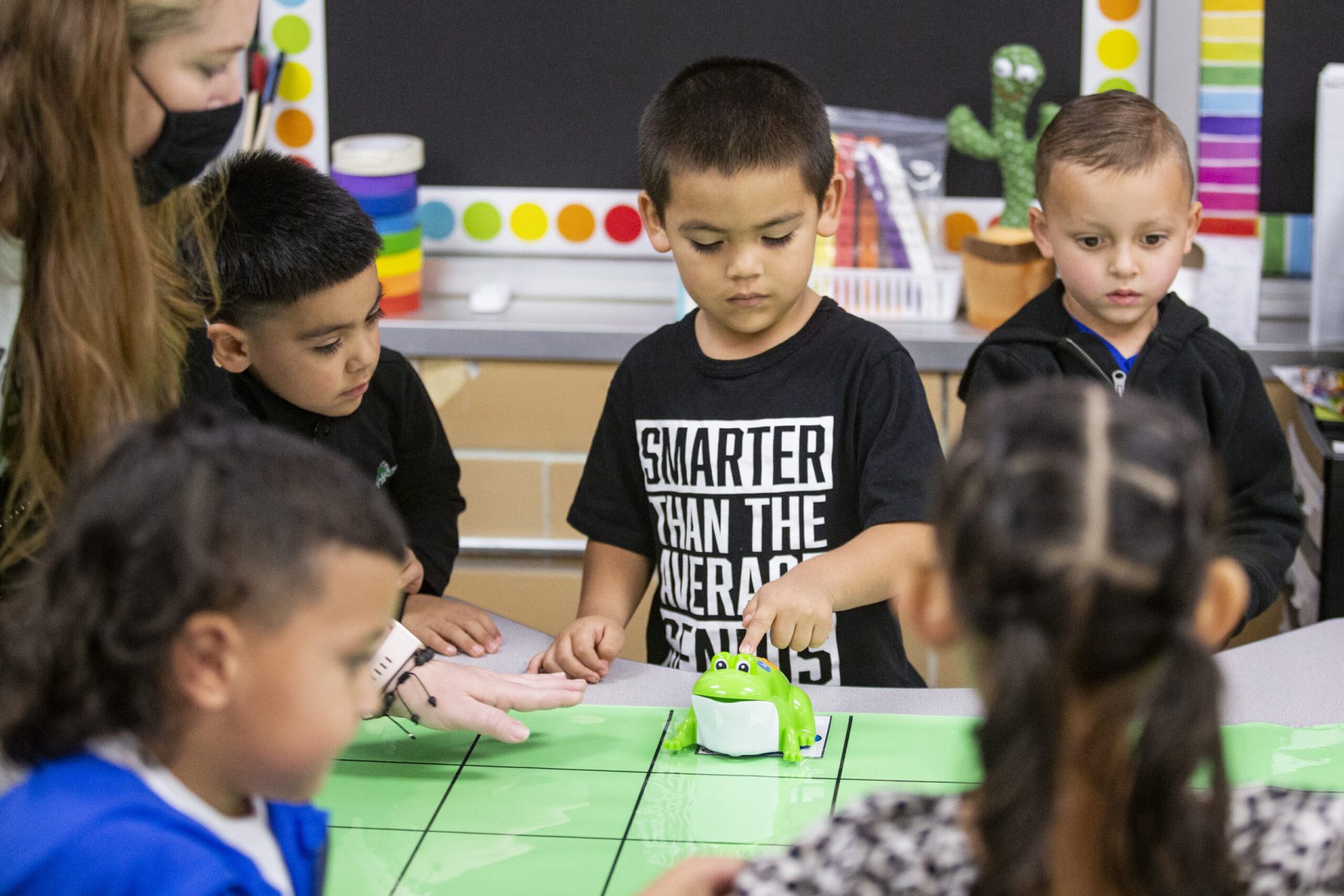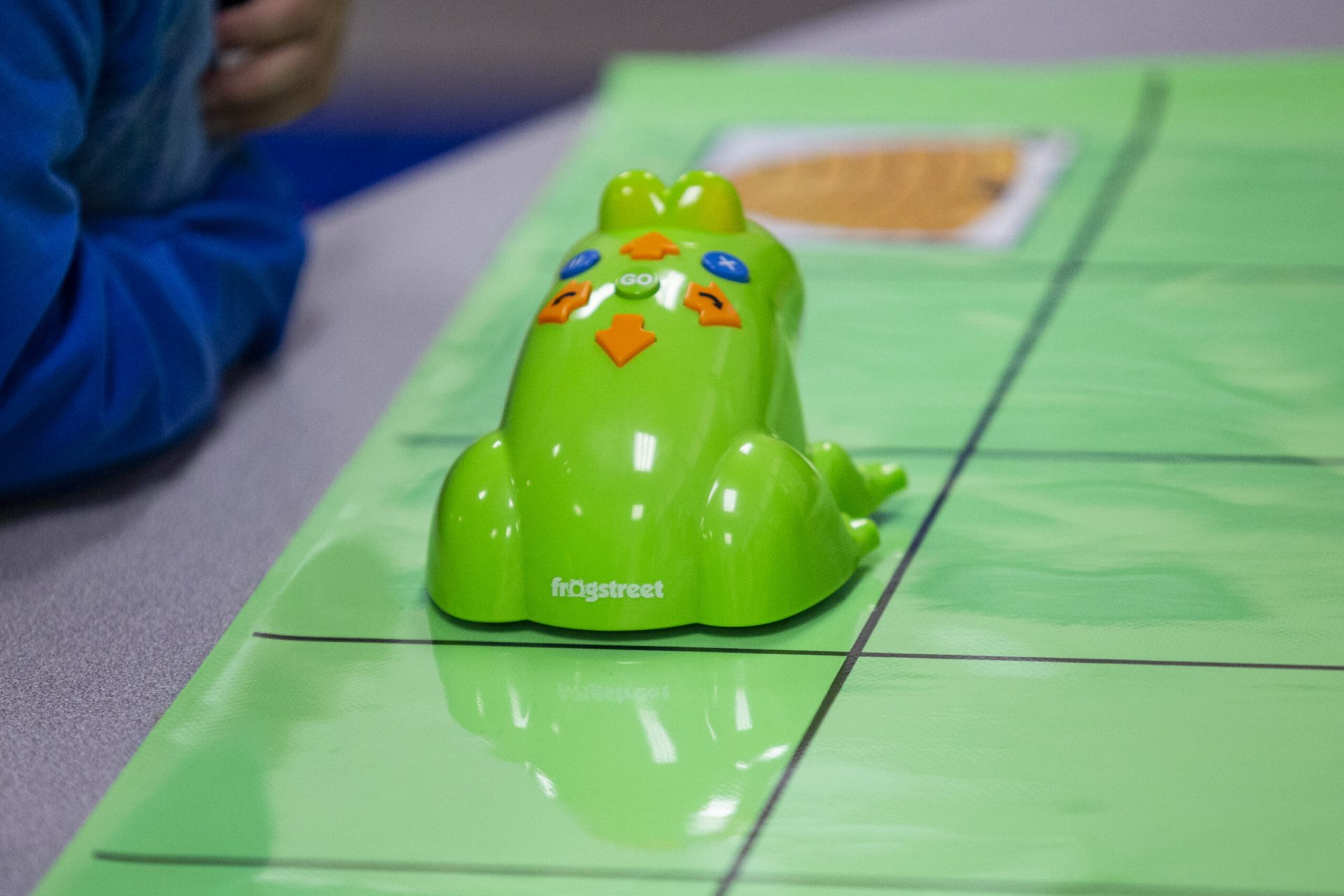Computer science is becoming more commonplace around Ector County ISD even at the elementary level.
Caitlin Couch, district science coordinator, deals mainly with elementary computer science, but works closely with Career and Technical Education for the middle schools ordering their materials and setting up the curriculum.
The high schools have their own computer science certifications and follow what the College Board issues for them, Couch said.
At the elementary level, there is Hour of Code from code.org, mostly in the STEM or STEAM campuses.
The nudge to expand came from the district’s partners at University of Texas Austin and the ECISD Innovation Department.
“We met as a district-wide team and decided … how we wanted to implement this,” Couch said.
They saw that the biggest need was in elementary because computer science was “kind of nonexistent.”
“I set out to find a partner to help entice and educate our families on what computer science and robotics would look like for their kids in an elementary classroom. We partnered with CS is Elementary, which is a nonprofit organization. They helped us host a family code night where students and their families got to learn the basis of coding and the big ideas behind why learning computer science at such an early age is so important,” Couch said.
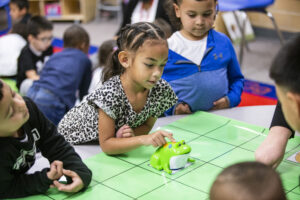
She added that it creates the critical thinking, analytical and collaborative skills among children.
Especially during a pandemic, students aren’t used to working with each other to accomplish a common goal.
“And so at the elementary we really take that approach is how can we work as a team to solve problems, especially with our robotics piece? They learn the coding and the sequencing and then they apply it to their robotics to accomplish goals. So we’re able to use the robots in all content areas. And so you know, they may show an expression in math in multiple different ways and then code it so that from start to finish, so they make their robot go and stop at each particular expression for a same value,” Couch said.
They were going to start with two pilot campuses, but after they had their family code nights, which got a huge response, they decided to make it broader.
“… We had over 500 families attend our family code nights. That’s pretty awesome. And then we were able to train quite a few, almost 200 teachers, in our computer science and our robotics for summer school. After all of that, our pilot campuses grew to eight. And so we have eight elementary campuses. We have two middle school campuses and then we have our two comprehensive high schools. Since then, we have expanded it down into our pre-k’s so we have a true STEM pathway, or computer science and robotics pathway, from pre-k all the way through 12th grade,” Couch said.
The program is at Carver and Lamar early education centers, along with elementary campuses that have prekindergarten.
“Our goal is to expand it to eight more campuses in ‘22-23. And then by the year ‘23-24, we would have all elementaries participating,” Couch said.
Couch has received support from nonprofit organizations, cyber.org, code.org and the Texas Advanced Computing Center at UT Austin.
She added that the TACC Team has been instrumental in getting her in touch with the right people.
“But it is myself and my three specialists and we are the ones that are rolling it out to all of our pilot campuses. We have been holding trainings that recur and our goal is to have four more family code nights this year just to kind of really spread the word once again and show them all the things that are involved in a computer science course and in robotics at the elementary level,” she said.
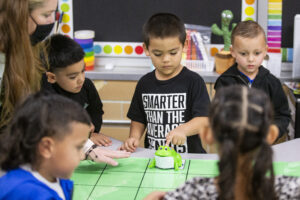
An initiative like this is unusual. ECISD was the first district in the nation to hold a code night on a district level.
“… Others have rolled it out elementary by elementary, but we went full flown district wide. Texas is very much behind the curve as far as the implementation of computer science,” Couch said.
Connecticut, for example, has a statewide initiative for computer science.
“We don’t have that here in Texas. So ECISD really has a chance to be that leader of the pack and really show how it can be implemented and have that solid pipeline from pre-k through 12,” Couch said.
Couch added that she was surprised at the amount of interest as an educator and a parent.
“… I also got to participate in the family code nights with my own children, so I got to see their engagement and their enthusiasm. And … I got to reap the fruits of my own labor and it was really amazing to get to see how engaged and excited they were. … Our goal was 100 families and for it to get to 500 was beyond anybody’s wildest dreams. … I think that really helped increase our participation in our summer acceleration programs because they had an hour a day devoted to computer science, robotics and gaming … It was a blast for them,” Couch said.
Learning computer science will help students step into high-paying jobs, like “We just started exploring and we were looking at what can we do as a part of the oilfield … A lot of those high paying jobs, those top-tier jobs in the oil field, we fly a lot of our people in for the engineering pieces … We have that clientele here, we just haven’t had an established program for them yet. Just looking at the data, there’s like 4,500 jobs open just in the state of Texas and the average pay is like $95,000. We know that we can produce that top-tier level and so we wanted to ensure that they had it for … their whole educational career at ECISD …,” Couch said.
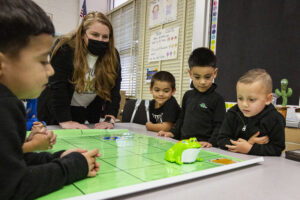
This will also give students a foundation for when they get to high school and challenge Advanced Placement courses. It would also help produce home-grown engineers that could apply their knowledge in their own back yards.
“We looked at middle school and … piloted it at Bowie two years ago and really saw how much fun it was,” she added.
She said the Region 18 Education Service Center helped a lot, as well.
“(Superintendent) Dr. (Scott) Muri really prides himself on being the leader and the innovator of the pack and so he was really excited about it. I presented a whole plan of action and he was on board and this is what’s come of it,” Couch said.
This is Couch’s sixth year with ECISD and her second year in the coordinator role. She taught math, biology and finance at Odessa High School.
Executive Director of Instruction and Professional Learning Lisa Wills said when they first started talking about spreading computer science throughout ECISD, Couch “really just kind of took this and ran with it.”
“She started having the meetings. She got the parents involved and then we worked on getting all of our teachers trained for summer learning so that they were prepared for it. I really think the teachers were just as excited, if not more excited, than the students were. It was fun to watch the teachers be so excited about teaching,” Wills said.
She added that summer learning tends to be a time when “everyone’s tired; they don’t want to be there.”
But that wasn’t the case last summer.
“… I think it all goes back to that work that Caitlin did to prepare them for that,” Wills said.
She added that it looks like ECISD will be partnering with University of Texas Permian Basin to bring computer programming to middle school students in the summer.
“And then we’re looking to a similar partner for our k through five education” Wills said.
The family code nights showed parents that computer science and coding is fun.
“It’s something that they can do with their children along with them doing it at school,” Wills said.
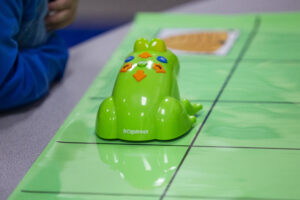
Wills noted that the curriculum ties into many different careers, not just computer programming.
Couch noted that it also crosses over into different subject areas.
Wills said it’s extremely important for students to learn computer science when they’re young.
“I think our students, the sooner they learn about this and the critical thinking process that has to take place with this type of learning, the sooner we start that … the further along students will be and the better they’ll be at it,” Wills added.
Couch said this is an opportunity for students to learn those critical thinking skills that they can use in all content areas.
“… I think the other important piece to this is that we enable all students to participate in this, so it’s not just a select group of students. … All students had this opportunity … so all of our students are aware of what’s out there and what they’re capable of,” Wills said.
This includes special needs students.
Couch said they discovered they had an aptitude for it.
“… When you boil it down, it really is just a sequence. How can I get from point A to point B? There’s not necessarily a right or wrong answer, right? We just want to get from A to B and so they were able to do that and looked at it from a unique perspective. And it’s something that they really excelled at. We have a group of students in particular at Bowie that have really excelled at it. They’re a part of the robotics club that’s at their campus. They participated in our family code night, as well. We have purchased some materials that kind of accommodate our robotics and our coding so that they can accomplish goals just like anyone else,” Couch said.

